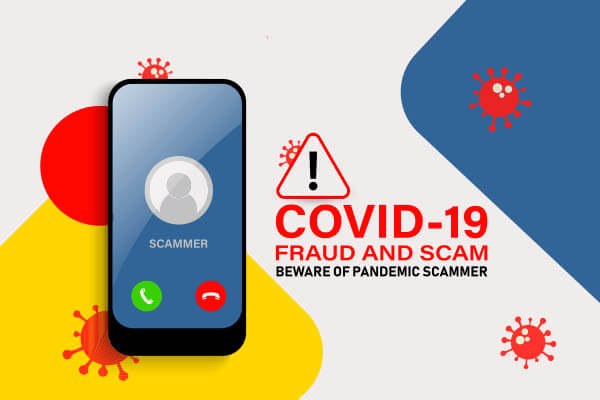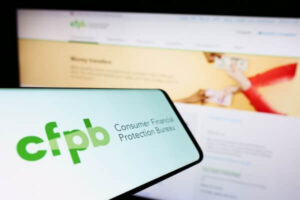You don’t have to catch the virus to get harmed by COVID-19. As soon as the pandemic hit, scams arose to take advantage of people’s fears.
In 2020, Americans have made nearly 250,000 reports of COVID-related scams to the Federal Trade Commission, totaling $170 million in losses. Online shopping and travel scams have been the top two areas of concern, but rip-off artists haven’t stopped there. The pandemic has created an especially good environment for cons. People are at home, so they’re reachable; they’re often isolated, so they’re vulnerable; and COVID’s economic havoc makes too-good-to-be-true deals more tempting.
So, whether it’s phony cures, get-rich-quick schemes or lonely-hearts scams, the pandemic has been a bonanza for swindlers. How do you keep from falling for one of them? We’ll show you.
Common COVID-19 Scams
Fraudulent contact tracers: State health departments employ contact tracers who contact those who may have been exposed to the virus and find out where they’ve been and whom they have contacted. If one asks you for money, that’s a big red flag. Also, legitimate tracers will reach you by phone, email, text or in person. They won’t ask you to download anything online.
Miraculous cures or preventatives: These include cures and preventatives such as blood and saliva from a supposed coronavirus survivor. Hoaxes. If you’re not hearing this from a health care professional or the Centers for Disease Control and Prevention itself, pay no attention to it.
Offers for vaccinations or home test kits: No effective vaccine has been created, and when it is, it will be made available by health authorities and recognized medical centers, not through online enticements. As for tests, check with your doctor. Treatments, filters that supposedly remove the virus from the air – don’t buy it.
Economic Impact Payment scams: Should Congress and the White House ever agree on another pandemic stimulus payment to taxpayers, don’t fall for calls, texts or emails claiming to be from the IRS asking for personal or bank account information. The IRS will never ask for such things. Avoid email attachments or links promising news about economic impact payments or tax refunds.
COVID-related charity scams: Be wary of any charity calling you asking for donations. If you are able, and want to help organizations financially, investigate them and visit their website to make sure they’re legitimate.
Social Security scams: The Social Security Administration will not suspend or decrease Social Security benefit payments or Supplemental Security Income payments due to the pandemic. Anything that says otherwise is a scam. Report such communications to the SSA Inspector General online at oig.ssa.gov.
How to Avoid COVID-19 Scams
The U.S. Justice Department recommends several steps.
- Check out the identity of any organization or person that contacts you regarding COVID-19.
- Look carefully at URLs and email addresses offering COVID-related information, products or services. Scammers frequently use addresses that slightly differ from legitimate sites. For example, the Centers for Disease Control and Prevention is cdc.gov, not cdc.com or cdc.org. Instead of clicking on links in messages, open up a new window and search for the name of the government agency.
- Be suspicious of unsolicited emails offering COVID information, supplies or treatment, especially if they seek your personal information. That’s not how authentic health authorities contact the public.
- Don’t click on links or open email attachments from unknown or unverified sources.
- Ignore offers from suspicious sources for a COVID-19 vaccine, cure or treatment. When a vaccine becomes available, you’ll almost certainly hear about it first through news and official announcements, not by an email, online ad or unsolicited sales pitch.
- Research online reviews of companies offering COVID-19 products or supplies. Avoid companies whose customers have complained about not receiving items.
- Research any charities or crowdfunding sites soliciting donations tied to COVID-19 before making a donation.
- Be suspicious of anyone seeking payments or donations in cash or by wire transfer, gift card or using the mail. Don’t send money using these payment methods or channels.
- Be wary of COVID-related investment proposals, especially those based on claims that a small company’s products or services can help stop the virus. Do your homework before investing.
- Visit government websites directly for reliable information.
- Say “NO” to anyone claiming to be from a government agency asking for cash, gift cards, wire transfer, cryptocurrency or personal and financial information. Don’t share your Social Security, Medicare ID, driver’s license, bank account, or credit card numbers.
COVID-19 Scams Often Target Seniors
As is often the case, seniors are a frequent target. The COVID-19 disease has reduced or even cut them off from in-person visits from children and grandchildren. They have savings that crooks want their hands on. If their spiritual or political affiliations are posted online, scammers can use that to approach them, pretending to be kindred spirits. Seniors must monitor and protect their online presence.
Protecting Older Relatives from Scams
Stay in regular contact, and ask questions. Have they been approached about making investments or told they’ve won money but need to pay fees or taxes in advance? Do this gently and carefully. If they feel you think they’re being stupid, they may refuse to tell you what’s going on. If you have access to their financial records, look for suspicious withdrawals or spending.
Sources:
- Patch, E. (2020, September 30) Watch Out for COVID Cons. Retrieved from https://www.kiplinger.com/personal-finance/601422/watch-out-for-covid-cons
- Block, S. (2020, August 26) Beware Crooked Contact Tracers. Retrieved from https://www.kiplinger.com/retirement/social-security/601247/beware-crooked-contact-tracers
- N.A. (ND) Coronavirus Advice for Consumers. FTC COVID-19 and Stimulus Reports. Retrieved from https://www.ftc.gov/coronavirus/scams-consumer-advice
- N.A. (2020, October 14) Retrieved from https://public.tableau.com/profile/federal.trade.commission#!/vizhome/COVID-19andStimulusReports/Map
- Witt, P. (2020, June 11) What do COVID-19 scams look like in your state? Retrieved from https://www.consumer.ftc.gov/blog/2020/06/what-do-covid-19-scams-look-your-state
- N.A. (ND) Keep Calm and Avoid Coronavirus Scams. Retrieved from https://www.ftc.gov/system/files/attachments/coronavirus-covid-19-pandemic-ftc-action/keep_calm_infographic_en_letter_508.pdf
- Komando, K. (2020, April 30) 10 COVID-19 scams spreading right now that people are falling for. Retrieved from https://www.usatoday.com/story/tech/columnist/2020/04/30/10-online-covid-19-scams-consumers-falling-right-now/3052342001/
- N.A. (2020, October 21) COVID-19 fraud is rapidly evolving. Retrieved from https://oig.hhs.gov/coronavirus/fraud-alert-covid19.asp
- N.A. (ND) Resources to help you avoid scams. Retrieved from https://www.consumerfinance.gov/coronavirus/avoiding-scams/
- Skiba, K. (2020, August 13) 10 Tips to Avoid COVID-19 Scams. Retrieved from https://www.aarp.org/money/scams-fraud/info-2020/doj-avoid-coronavirus-fraud-tips.html


















